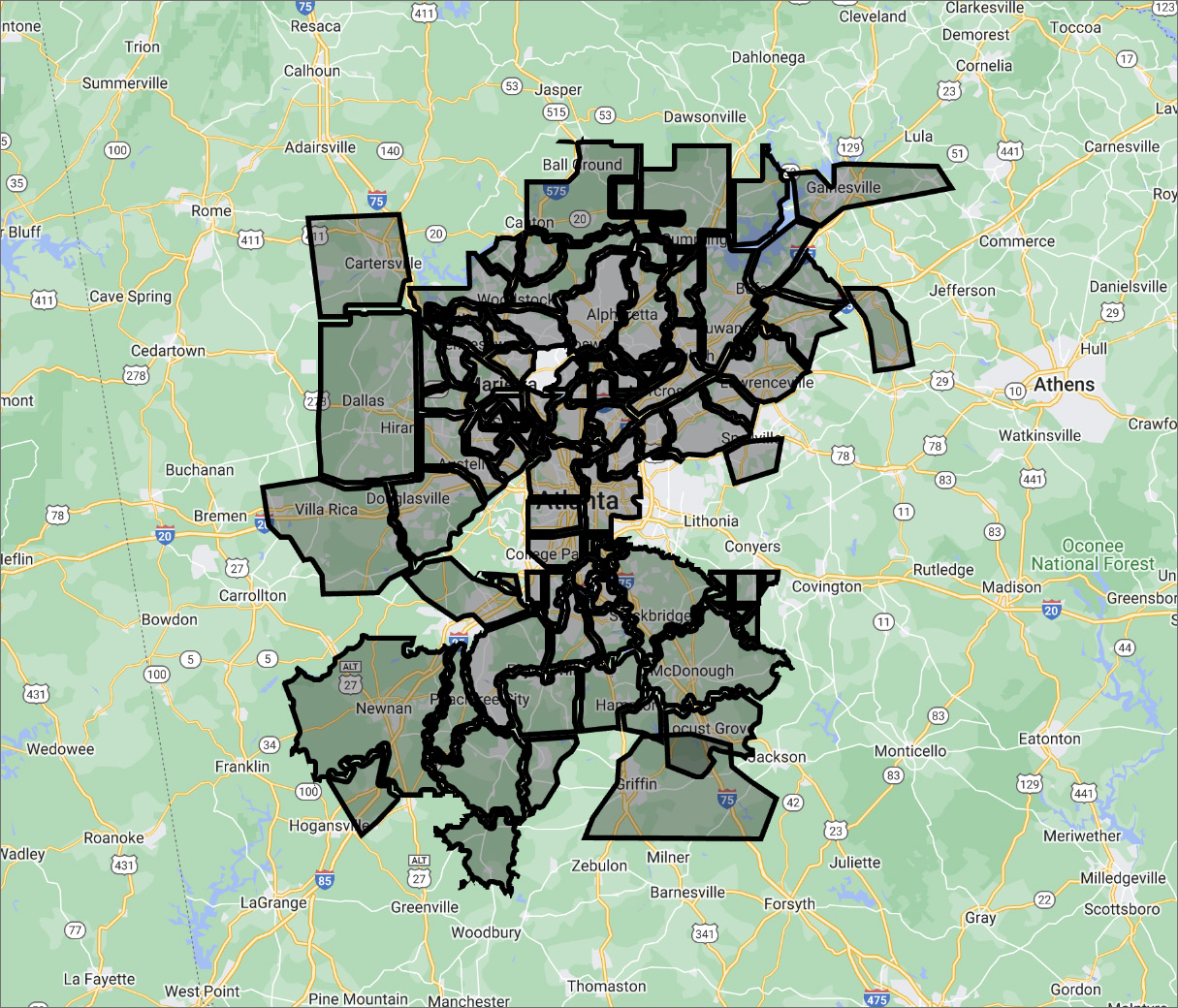Many people rely on kennels and boarders to take care of their pets when they travel. Unfortunately, boarding dogs can expose them to serious canine health risks. Like humans, dogs are vulnerable to contagious diseases and infections, which can spread rapidly in social settings like kennels and doggy daycares. Before you send your dog to the boarder, our Atlanta dog sitters urge you to consider the risks of transmissible canine diseases. You may change your mind about going to that kennel after all.
4 Contagious Illnesses and Infections Your Dog or Puppy Can Catch at a Kennel

Most boarders love dogs and have nothing but the best intentions. However, the very nature of boarding means that multiple animals share a space, which is a major risk factor for communicable diseases, infections, and other health problems, such as:
- Heartworm – Heartworm (Dirofilaria immitis) is a type of roundworm that lives inside the lung arteries and heart. It is spread from animal to animal by mosquito bites. Heartworm can be fatal if left untreated. The effects of heartworm can include:
- Coughing
- Difficulty breathing
- Fatigue
- Vomiting
- Weight loss
- Kennel Cough – This common yet potentially life-threatening canine illness is so prominent in social settings that it has the word “kennel” right in the name. Kennel cough is otherwise known as infectious canine tracheobronchitis, because the trachea (windpipe) and bronchi (air passageways in the lungs) become inflamed, which is what the “-itis” suffix means. Effects of kennel cough include:
- Dry cough
- Fever
- Gagging/retching
- Lethargy
- Runny nose
- Parvovirus – Sometimes called “parvo” for short, parvovirus is a very serious and extremely contagious viral disease spread by contact with canine fecal matter. Parvovirus is especially dangerous for puppies, because it can cause permanent heart damage that leads to a lifetime of issues with cardiac health. Parvovirus can be fatal, even with aggressive treatment, and infected dogs often need to be hospitalized for days. Effects of parvovirus can include:
- Bloody diarrhea
- Decreased appetite
- Dehydration
- Vomiting
- Ringworm – Ringworm is a misleading name. Unlike heartworm, ringworm isn’t actually a parasite. It’s a fungus that infects nails, hair, and skin, which can cause hair loss, itching, and skin irritation. Ringworm can spread to humans, and can reoccur even after treatment is completed.
Other Risks of Boarding Your Pet: Bites, Fleas, Allergies, and Overheating

Diseases and infections aside, kennels and boarders have a few additional hazards that can prove harmful or even fatal for your beloved pet dog.
- Bite Injuries – Dogs are social creatures, but they can also be territorial and aggressive, especially when they’re placed in an unfamiliar or crowded environment. It only takes a second for a dog fight to erupt, with potentially deadly consequences for one or more of the animals.
- Food Allergies – Some boarders allow or encourage clients to supply their own dog food. However, if you don’t bring your own chow, you have no idea what sort of food your dog will receive.
- Heat Exhaustion – Earlier this year, nearly two dozen dogs died from heat exhaustion at Green Acre Dog Boarding in Arizona, where 23 animals were kept in a tiny room measuring just nine by 12 feet. This deplorable case of animal cruelty is a rather extreme example, but still serves as a grim reminder of the risk you take by sending your dog to a boarder.
- Ticks and Fleas – Fleas and ticks are repulsive, irritating, and itchy. However, the consequences of a bite or infestation can be far worse than mere skin irritation. These tiny hitchhikers are infamous disease vectors that jeopardize canine and human health, capable of transmitting conditions like:
- Babesiosis – Causes abdomen enlargement, weight loss, skin discoloration, fatigue
- Ehrlichiosis – Causes anemia, weight loss, eye problems, fever
- Lyme Disease – Causes fever, respiratory problems, stiff walk, swollen lymph nodes, heart problems
- Tick Paralysis – Causes vomiting, increased heart rate, trouble eating, slowed reflexes, drooling, weakness, paralysis
Hire a Professional Dog Sitter in Atlanta, Smyrna or Sandy Springs, GA
Ultimately, the decision to use a boarder or in-home Smyrna dog sitter is up to you. But for roughly the same price – and in some cases, a lower price – in-home pet care has none of these health risks. When you choose a Sandy Springs dog sitter from Critter Sitters, your dog gets to stay in their own safe, cozy, comfortable home, with none of the hazards or stressors that often exist at boarding facilities.
As one of the largest and oldest pet sitting services in the Atlanta area, Critter Sitters has developed a reputation for providing trustworthy, reliable, high-quality pet care. Our commitment to excellence in canine health and safety has earned us positive testimonials from eight veterinarians, not to mention countless satisfied clients! To set up a free consultation, give Critter Sitters a call at 404-793-6178 today.


